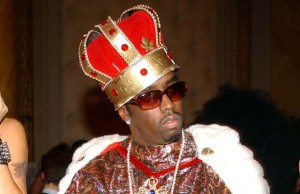Of the many quotes, Sean Combs, a.k.a. P.Diddy, has known to say is that, “in good and bad times, we’ll always make it through”(Taj, 2012). The key word in this quote is the word “we”. As educators many times, we tend to isolate ourselves in our own classrooms, and because of this, these places have almost become our “own world.” However, isolation can be fatal when it comes to improving ones own practice, as well as student achievement, which is the cornerstone of education. Further, according to John Hattie (2016), collective efficacy, which is the belief that through collective actions, educators can influence student outcomes and improve student learning, ranks as the greatest factor impacting student achievement (Hattie, 2016). So, let’s take heed to some of P.Diddy’s greatest rules for success; rules that have made him one of the greatest business and entertainment moguls of all time. Because in actuality, don’t we want to be the very best educational gurus for our own students and communities?
Rule number 1: Collaborate. Some of P.Diddy’s greatest hits came from his collaborative experiences with different people. Although it probably took a lot of trust and extra time to do this, it is one of the reasons he has become so successful. And, aren’t we happy he collaborated; there would have been no Notorious BIG if he hadn’t! Moreover, if teachers are going to truly improve their practice, then they need to create strong relationships with each other, and take the time to collaborate. What lessons or activities are your “neighbor teachers” incorporating that are getting student learning gains? What strategies are being used in your “neighbor’s” class that has all of their students pumped, engaged, and ready to think critically? Living and working in isolation won’t make you better; collaborating with peers will. So, find your Notorious BIG and get to work!
Rule number 2: Shared decision-making. You think that P.Diddy made the decisions on what beat to use or even what lyrics would sound best, all on his own? Heck no! He worked with his artists and record companies and together, they decided on what would be best for the brand. In education, why don’t we feel comfortable doing the same? Advancing teacher influence involves teachers assuming specific leadership roles on school-wide issues (Donohoo, 2017). By getting teachers to become involved and invested in what is happening at their school, a true sense of trust and collective efficacy will be created. So lead learners, if you’re reading this, start inviting your teachers to take part of some shared-decision making in your buildings. It’s the only way your school culture will become one where all parties will feel like they can make a difference!
Rule number 3: Have high expectations. Always! In an interview with P. Diddy, he shared that, “you have to be somewhat crazy, if you want to be successful” (Taj, 2012). Diddy didn’t start as the mogul of Bad Boy. He worked in an internship at Uptown Records that later led him down the path to success. He believed that he would be great and made up his mind that he would outwork everyone. As educators, we need to do the same. We need to believe that we can be successful, and that we can make an impact on all students, and more so, we need to be relentless in this belief. What’s more powerful than this mindset, is also believing that your “neighbor teacher” is ALSO making a difference. Because together, groups can accomplish so much more! By having high expectations, students will benefit exponentially. By believing and trusting that your “neighbor teacher” is doing their best, it will only improve your school’s culture, and ultimately collective efficacy on your campus. And, isn’t that the ultimate goal in all schools- to improve the culture to make a positive impact on student achievement?
Rule number 4: Provide feedback and Interpret Results. According to an interview with Forbes, P. Diddy was quoted saying that, “information is king” (Dillon, 2014). When teachers examine evidence of student learning, and are able to do so in collaboration with each other, student achievement increases. So rather than meeting because “you are supposed to” or because “it was in the schedule” make your professional learning communities meaningful, purposeful, and student-data driven! The aim is to, “shift conversations from generalized talk to more in-depth conversations” (Donohoo, 2017). And if you’ve been following Rules 1-4, then you know that these meetings won’t be “meetings” rather they’ll become a collaborative experience where you get to bounce ideas back and forth with your Notorious BIG “neighbor teachers”. And to be honest, what’s better than learning and working from and with them?
Following Rules 1-4 won’t just make you the best “P. Diddy” educator and lead learner out there, but by building a solid and true sense of collective trust and working relationship with others on your campus, you will be unstoppable; and most importantly, your students will benefit. So, as P. Diddy would say, “can’t stop, won’t stop!”
References
Dillon, Sebastian. (2014). P. Diddy: Top 5 Lessons Crucial for Success. Retrieved from www.nextshark.com
Donohoo, Jenni (2017). Collective Efficay. How Educators’ Beliefs Impact Student Learning.
Hattie, J. (2016, July). Keynote speech. Third Annual Visible Learning Conference: Mindframes And Maximizers. Washington, DC.
Taj (December 2012). Make me Successful: Top 7 P. Diddy Quotes. Retrieved from www.make-me-successful.com
